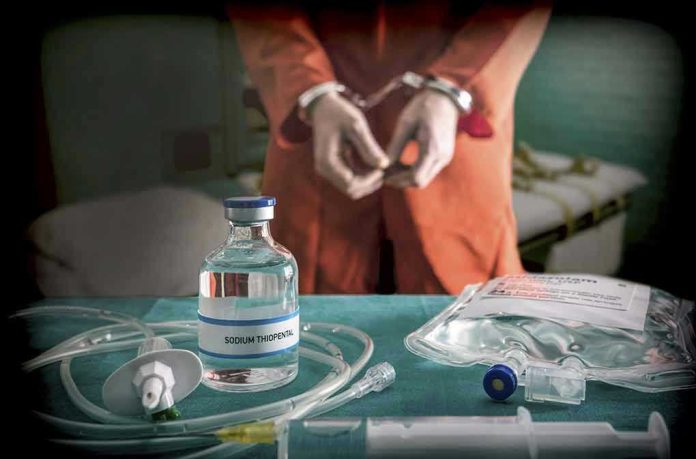
Missouri executed a man who spent his final moments claiming innocence in the murder of a state trooper, despite never finding the murder weapon or any direct physical evidence linking him to the crime.
Story Overview
- Lance Shockley, 48, was executed for the 2005 murder of Missouri State Highway Patrol Sergeant Carl Dewayne Graham Jr.
- The conviction relied entirely on circumstantial evidence with no murder weapon ever recovered
- Shockley maintained his innocence until his execution on October 14, 2025
- Governor Mike Kehoe denied clemency, marking Missouri’s first execution of 2025
- The case highlights ongoing debates over capital punishment based on circumstantial evidence
The Fatal Ambush That Started It All
On a March evening in 2005, Sergeant Carl Dewayne Graham Jr. pulled into his driveway in Van Buren, Missouri, after another day protecting the highways of his state. As he stepped from his patrol vehicle, a gunman emerged from the shadows and fatally shot the veteran trooper outside his own home. The calculated nature of the attack sent shockwaves through Missouri’s law enforcement community and launched a murder investigation that would span nearly two decades.
The prosecution painted a picture of premeditated revenge. They alleged Shockley harbored a deadly grudge against Graham, who had previously investigated him for a fatal car crash. According to prosecutors, Shockley meticulously planned the murder, conducting surveillance on Graham’s home and lying in wait for the perfect moment to strike. The motive seemed clear, but proving it would prove far more challenging.
A Case Built on Shadows and Suspicion
Four years after Graham’s murder, prosecutors finally brought Lance Shockley to trial, but their case rested entirely on circumstantial evidence. No smoking gun, no DNA evidence, no eyewitnesses to the actual shooting. Instead, they pieced together a puzzle of suspicious behavior: Shockley’s inquiries about Graham’s residence, attempts to dispose of ammunition, and his connection to the trooper through the previous investigation.
Defense attorney Jeremy Weis consistently argued that “the state’s case remained circumstantial” throughout the lengthy appeals process. The absence of the murder weapon became a rallying point for Shockley’s defenders, who questioned how the state could execute a man when the most crucial piece of evidence had never been found. Yet in 2009, a jury found the circumstantial evidence compelling enough to convict Shockley and sentence him to death.
The Final Stand for Innocence
Shockley’s legal team made desperate attempts to halt the execution. They pushed for DNA testing of evidence that had never been analyzed, arguing that modern forensic techniques might finally prove their client’s innocence. The Missouri Supreme Court rejected these appeals, and Governor Mike Kehoe denied clemency with a statement that reflected the political reality surrounding crimes against law enforcement.
“Violence against those who risk their lives every day to protect our communities will never be tolerated,” Kehoe declared. “Missouri stands firmly with our men and women in uniform.” The governor’s words resonated with a public that generally supports harsh punishment for those who target police officers, but they also highlighted the political pressures that can influence capital punishment decisions when the victims wear badges.
Justice Served or System Failed
Lance Shockley became the first person executed in Missouri that year, maintaining his innocence until the lethal injection took effect. His death brought a measure of closure to Graham’s family and colleagues, but it also reignited familiar debates about the death penalty’s application in cases lacking direct evidence. The execution occurred on the same day as another in Florida, highlighting how few states continue actively using capital punishment.
The Shockley case exposes the inherent tension in America’s justice system between the finality of execution and the fallibility of human judgment. While supporters argue that circumstantial evidence can be just as compelling as direct evidence when properly presented, critics point to cases like this as examples of why the death penalty should be abolished entirely. For Missouri, which has carried out nearly 100 executions since 1989, Shockley’s case represents both the state’s commitment to law and order and the ongoing controversy surrounding capital punishment in modern America.
Sources:
Missouri man maintains innocence, set to be executed for killing state trooper
Missouri man executed for 2005 fatal shooting of state trooper



